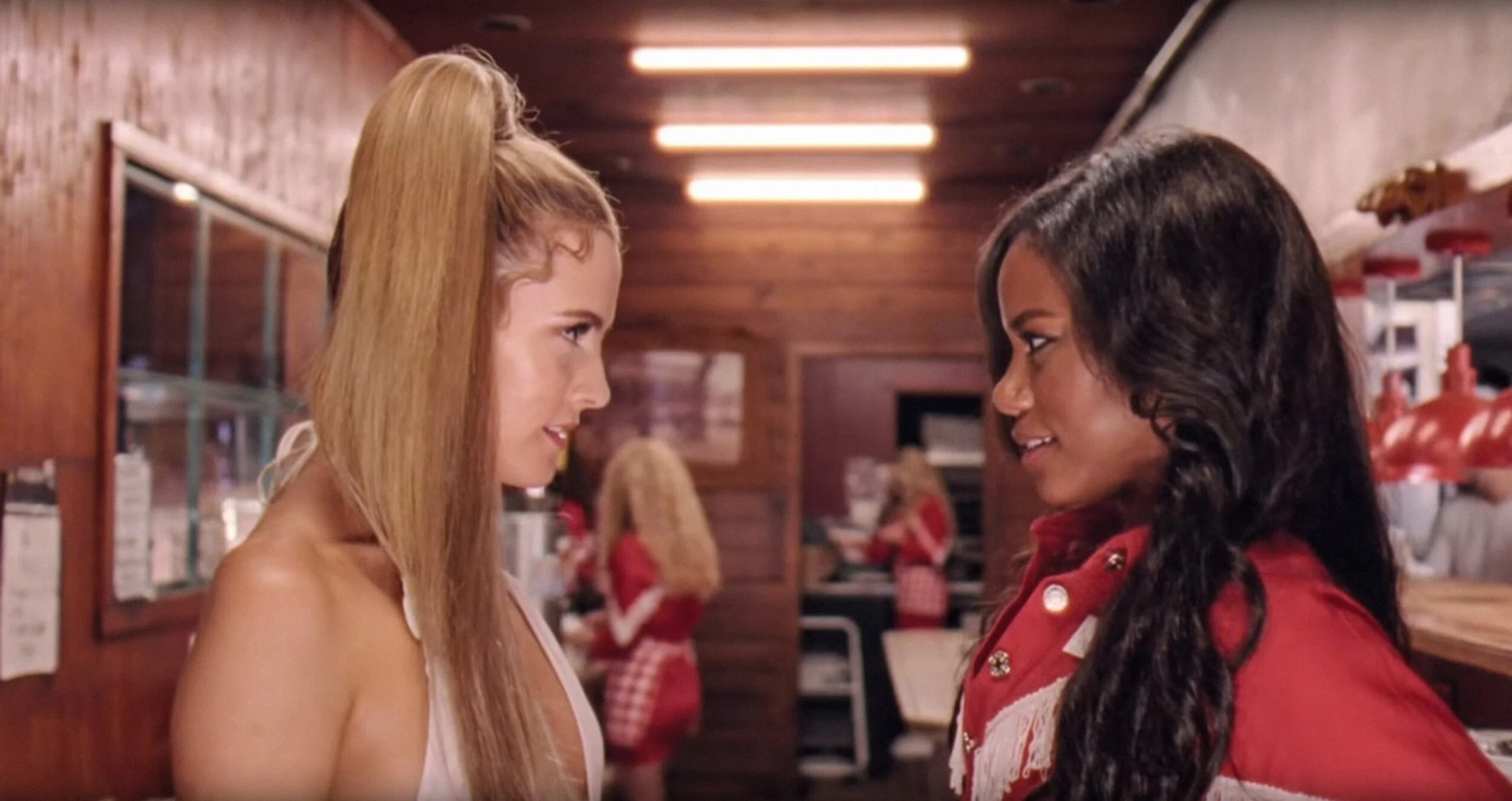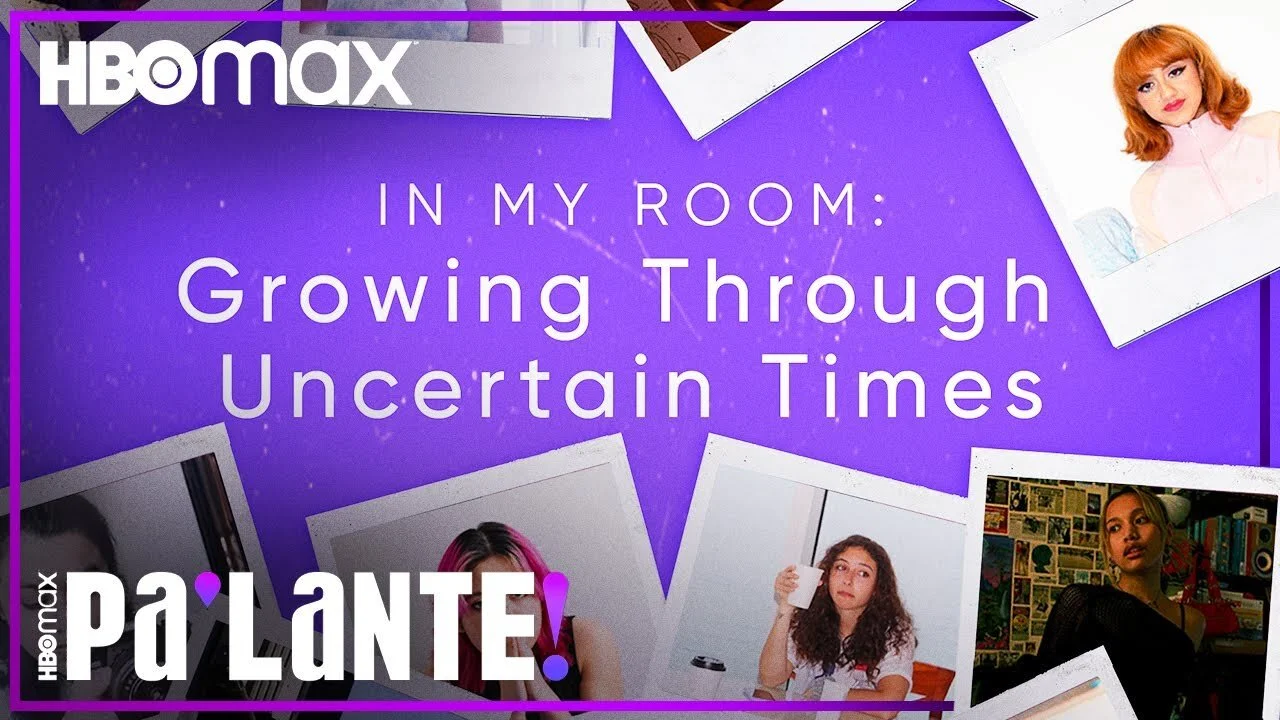Film Review: Zola
There are few Twitter threads that start as chaotically iconic as A’ziah ‘Zola’ King’s infamous one does: “Wanna hear a story about why me and this bitch fell out?? It’s kinda long but full of suspense.”
The first-of-its-kind cyber story was a rollercoaster. We got a taste of the trials and tribulations of a sex worker’s weekend trip gone crazy. The story has the makings of a blockbuster hit: a suspenseful plot, an idiot boyfriend getting involved in his girlfriend’s sex trafficking adventure, and a pimp shootout with Tampa gangsters. The 148-tweet thread even caught the eye of Ava DuVernay, who said the story was unlike anything else and that King’s ridiculously hilarious and dark tale was proof of “untapped talent in the hood.”
That was part of what fueled the hype that came with bringing the thread to life in a feature film. At the start of the story Zola, played by Taylour Paige, is working another boring shift at a local restaurant when she meets Stefani (played by Riley Keough), her soon-to-be partner in crime. Stefani, with her exaggerated baby hairs and thick ass blaccent, is Zola’s new fixation (and maybe even savior), offering fun, new energy outside of an otherwise uneventful life. After just one night out together Zola accepts Stefani’s invitation to go strip in Tampa for the weekend. What should be a fun and hoe-ish girls’ trip turns into a dark setup as Zola finds herself stuck with Stefani’s antics, her anger-prone pimp, and a boyfriend who’s working overtime with the one brain cell he has.
“Zola” is an artsy take on the 2015 Twitter thread, shaping it to be a smart statement on the dangers of sex trafficking and the racist microaggressions that Black women face every day in their lives.
Stefani’s defense of the ill-fated turn of events of the weekend is an entertaining and slick way of showing how deeply rooted the tendency of white women to scapegoat Black women is. Mid-movie Stefani feigns being a Jesus-loving churchgoer, and makes Zola out to be the villain. She has the nerve to say it was Zola who convinced her to trick for the weekend.
Stefani’s testimony doesn’t damage how we see Zola because we know what she’s thinking on the surface. The piece that’s missing is understanding Zola deep down. Who is she? What is she to the story other than a narrator and a body, sexualized and exploited? We see a whole lot more of her body in the movie than we do Stefani’s. Stefani gets a background story; her relationships with her boyfriend and pimp are explored, if slightly.
As for Zola’s exposition, the film leaves much to be desired. For a story that is Zola’s own, for one based on a Twitter thread filled with so much personality and sass and wise hoe-isms, this movie doesn’t show much of who Zola really is.
It’s beautifully shot and color edited. At times the movie is really funny, and other times, really uncomfortable. But it feels like a jumbled up, ill-paced recap of King’s original tweets. It doesn’t feel like we’re actually fully following Zola’s real thoughts. It feels more like watching a story through a murky lens and not being able to see the little details that really make the bigger picture pop.
To be fair, everyone kills their role. Keough masters the art of cultural appropriation and Nicholas Braun is perfect at being pathetically funny as Stefani’s sad boyfriend. Paige does great too, but when you consider the real Zola, outside the film, through what she’s shared on her personal social media, it just isn’t enough.
The Twitter thread wasn’t 100% accurate. King has admitted to embellishing some of the details, as the real-life boyfriend and Stefani claim other versions of events took place. But that thread did what it had to do — it told a story and gave it life (as much as possible with a limiting 140 characters per post). The movie doesn’t commit to following through and fully shocking viewers with some of the more dramatic moments. Maybe some stories are better kept as tweets.













